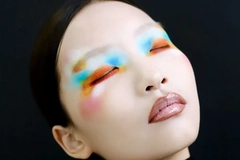Australian regulators tighten cosmetic injectable guidelines amid safety concerns

The Australian Health Practitioner Regulation Agency (AHPRA) has announced the implementation of comprehensive guidelines and regulations to ensure consistent safety standards for dentists and nurses performing cosmetic injectables.
Until now, these practitioners have been able to operate without requiring additional education or training in aesthetic medicine.
The agency is responsible for ensuring that health practitioners are qualified, registered, and practicing safely and ethically.
The decision follows the increased participation of professionals entering the profitable cosmetics procedures sector, driven by Australia’s growing consumer demand for low-risk, non-invasive treatments. Tighter regulations are being enforced amid claims that certain practitioners place commercial gain above patient welfare.
The Nursing and Midwifery Board of Australia’s chair, Veronica Casey, says the safety of the Australian public is paramount. “These types of procedures are undertaken daily and can have serious consequences if not done correctly.”

“No practitioner should put their bottom line ahead of patient welfare, and these guidelines focus squarely on the safety of those in their care.”
Under the new guidelines, health practitioners must undergo further training and educational practices before performing non-invasive cosmetic procedures such as Botox and anti-wrinkle filler injections.
.jpg) New guidelines prioritize patient safety over commercial gain.Updated guidelines
New guidelines prioritize patient safety over commercial gain.Updated guidelines
The published guidelines by the AHPRA and National Boards will align all registered health practitioners with the standards already in place for medical practitioners, ensuring consistency and regulatory compliance across the sector.
Implemented on September 2, 2025, the guidelines will require nurses to complete 12 months of full-time practice before expanding their scope of practice into non-surgical cosmetic procedures.
They also outline a minimum period of experience needed and remind practitioners of their obligation to put patient welfare first, stating that the prescriber remains responsible for patient care.
Patients seeking cosmetic injectables are now advised to verify their practitioner’s registration via the AHPRA website.
Advertising changes
As social media marketing and advertising continue to shape consumer behavior, the updated guide places a ban on advertisers promoting non-surgical cosmetic procedures to minors (under 18).
Those under 18 considering such procedures will also have a mandatory seven-day cooling-off period between their first consultation and proceeding.
“This industry relies heavily on having a social media presence, so practitioners have been put on notice that their advertising must comply with the new guidelines when they come into effect later this year,” says Ahpra CEO Justin Untersteiner..jpg) Practitioners must now complete additional training before performing injectables.
Practitioners must now complete additional training before performing injectables.
Additionally, AHPRA reports advertising changes will be implemented to protect consumers and ensure they can make safe, informed decisions before undergoing considered procedures.
The restrictions will focus on higher-risk procedures and ensure advertisements contain legitimate practitioner information. Stricter limits on social media promotions will also be introduced, reinforcing the ban on social media influencer testimonials.
Consumer concerns
The changes in guidelines for practitioners have been driven by an investigation by the AHPRA, conducted between September 2022 and March 2025, whereby safety concerns over non-surgical cosmetic procedures were highlighted.
The independent statutory authority investigated 360 notifications related to non-surgical procedures — as a result, 300 of these are now closed. The volume of complaints spans several regulated professions across medical practitioners, including nurses, midwives, dentists, psychologists, and Chinese medicine practitioners.
Over 1500 calls have been made to the cosmetic surgery hotline, with further investigations escalated where required.
 Stricter advertising rules ban promotions targeting minors.Safeguarding the industry
Stricter advertising rules ban promotions targeting minors.Safeguarding the industry
The cosmetic industry is undergoing increased regulatory scrutiny in response to growing concerns surrounding safety, transparency, and ethical practices, led by eco-conscious, wellness-focused Gen-Z and Millennial consumers.
Beauty brands and industry professionals recognize that meeting this demand is essential to gain consumer trust in a competitive global market.
Personal Care Insights recently reported on South Korea’s commitment to refining its cosmetic regulations through amendments to the Cosmetics Act enacted in April. The amendments include revised standards on ingredient usage, the removal of natural and organic certifications, and enhanced labeling accessibility to ensure optimized product safety and transparency.
The strategic move aims to future-proof its growth in the beauty sector due to impending US trade tariffs. “We will work to ensure high-quality Korean cosmetics can access global markets more smoothly,” the country’s Ministry of Food and Drug Safety said.
Additionally, South Korea has tightened regulations on indiscriminate false advertising of online products to enhance consumer protection as social media marketing expands.
Meanwhile, last month, a report revealed that England would ban remote prescriptions for non-surgical cosmetics, such as fillers and Botox, in the interest of public safety. Starting June 1, patients must see a qualified prescriber face-to-face before receiving treatment.













